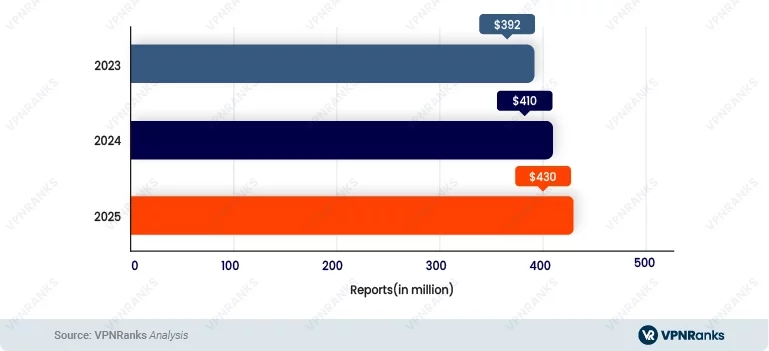PayPal Fraud Attacks: Lessons for Australian Small Businesses
In 2025, one of the most disruptive scams to hit e-commerce involved PayPal fraud attacks that targeted WooCommerce’s block-based checkout system. Hackers exploited weaknesses to run thousands of fraudulent transactions, testing stolen credit card details on unsuspecting online stores. For Australian small business owners, the fallout has been significant — ranging from frozen PayPal accounts to mounting chargeback fees and even lost customer trust.
This article breaks down what happened, why small businesses were hit hardest, and what you can do to stay protected. Whether you’re running WordPress web hosting in Australia or just starting out with your first online store, the lessons here can help safeguard your business future.
What Actually Happened in the 2025 PayPal Fraud Attack?
WooCommerce introduced a block-based checkout to modernise the shopping experience. However, fraudsters quickly found that the system could be abused to send high volumes of small transactions through PayPal, effectively using small business sites as testing grounds for stolen cards.
Instead of being caught by PayPal’s automated systems, many of these transactions slipped through, leaving merchants with:
- Chargeback fees of $20–$30 per fraudulent transaction
- Frozen or limited PayPal accounts due to suspicious activity
- High risk flags on their business payment accounts
The attack wasn’t just technical. It was psychological too — scammers relied on the fact that most small businesses lack a dedicated IT or fraud prevention team, making them slower to react and more vulnerable to ongoing waves of fraudulent activity.
Why Small Australian Businesses Were Targeted
Australian online stores became a prime target because:
- Time zones gave fraudsters cover — most attacks happened overnight when owners weren’t monitoring sales.
- Small business hosting setups often lack enterprise-level firewalls or real-time fraud detection.
- PayPal dependency is high, especially among small operators who rely on it for trust and ease of use.
- Limited knowledge of WooCommerce’s latest features left many store owners unaware of security gaps.
In short, Australian SMEs were the low-hanging fruit — accessible, easy to exploit, and slow to notice unusual patterns.
The Hidden Costs of PayPal Fraud
It’s tempting to see fraud as “just a few dodgy orders.” But the costs add up quickly. For small businesses, even a handful of fraudulent orders can mean:
- Chargebacks eating into margins: Repeated chargeback fees can erode monthly revenue.
- Account holds: PayPal may freeze funds for 21 days or longer, starving cashflow.
- Lost reputation: If legitimate customers get caught in verification blocks, trust suffers.
- Security fatigue: Business owners spend hours chasing their tails instead of growing sales.
Ultimately, the real cost isn’t just financial. It’s the loss of confidence for both store owners and their customers. Once a shopper questions the safety of your checkout, winning them back becomes an uphill battle.
Predicted Global Losses From Credit Card Fraud

What Lessons Can Small Business Owners Learn?
The 2025 PayPal/WooCommerce fraud wave offers a set of clear lessons for Australian entrepreneurs running online stores:
1. Hosting Security Matters More Than You Think
Choosing the right Australian web hosting partner is the foundation of online protection. A secure host with real-time monitoring and malware detection reduces exposure to these kinds of automated attacks. Cheap overseas hosting may save dollars upfront but can cost thousands in fraud-related downtime and chargebacks.
2. Keep WooCommerce and Plugins Updated
One of the simplest ways to avoid exploits is also the most overlooked — updates. Ensure your WooCommerce installation, PayPal plugin, and WordPress core are always running the latest versions. Vulnerabilities are often patched quickly, but only if you apply the updates.
3. Enable Advanced Fraud Filters
WooCommerce and PayPal both provide tools to block suspicious activity, such as country restrictions, velocity checks (limiting rapid-fire orders), and requiring stronger customer verification. These settings often sit unused because store owners aren’t aware they exist — take the time to explore and enable them.
4. Monitor Orders Like a Hawk
Set up alerts for unusual patterns: multiple low-value orders, repeated failures, or large bursts of overnight transactions. Even without expensive software, simply checking transaction logs daily can highlight fraud before it spirals out of control.
5. Don’t Go It Alone
Most small business owners don’t have the bandwidth to master cyber security — and that’s okay. Outsourcing hosting, security monitoring, or even a periodic VPS hosting audit can give peace of mind while you focus on sales and service.
How Hosting Choice Shapes Security
One of the big takeaways from the 2025 scam is that web hosting is more than just “space on a server.” A reliable provider offering WordPress web hosting in Australia ensures faster updates, lower latency for fraud filters, and local support that understands your timezone and market conditions. It also means your data stays onshore — important for both compliance and customer confidence.
For businesses outgrowing shared hosting, moving to Australian VPS hosting provides the extra control and power needed to run advanced firewalls, fraud detection, and scaling checkout systems without compromising speed.
What To Do If You’ve Already Been Hit
If you suspect your WooCommerce store has been part of a PayPal fraud attack, act quickly:
- Pause PayPal checkout temporarily and switch to a backup gateway.
- Contact PayPal and report suspicious transactions — this may prevent account limitations.
- Notify your hosting provider — they can scan logs, block offending IPs, and tighten firewalls.
- Communicate with genuine customers to reassure them their data is safe.
Acting fast can mean the difference between a small setback and a major financial hit.
The Future of Fraud Prevention
Fraudsters aren’t going away, and as e-commerce evolves, so will their tactics. But small businesses aren’t powerless. By investing in secure Australian web hosting, keeping systems up-to-date, and actively monitoring transactions, you can stay ahead of the curve.
PayPal itself has already announced stricter fraud filters and AI-based monitoring for 2026. Combined with proactive small business security, this could mean fewer sleepless nights for owners worried about the next big scam.
Conclusion: Turn Crisis into Preparedness
The 2025 PayPal/WooCommerce exploit exposed weaknesses that many small business owners didn’t even know they had. But it also created an opportunity — to get serious about hosting, security, and ongoing monitoring. By learning the lessons now, you can make your online store a far harder target for fraudsters.
Stay a step ahead of fraudsters. If you’re unsure whether your current hosting is secure enough for WooCommerce, get in touch with our team today. We’ll help you tighten up security and ensure your online store is protected against future attacks.







